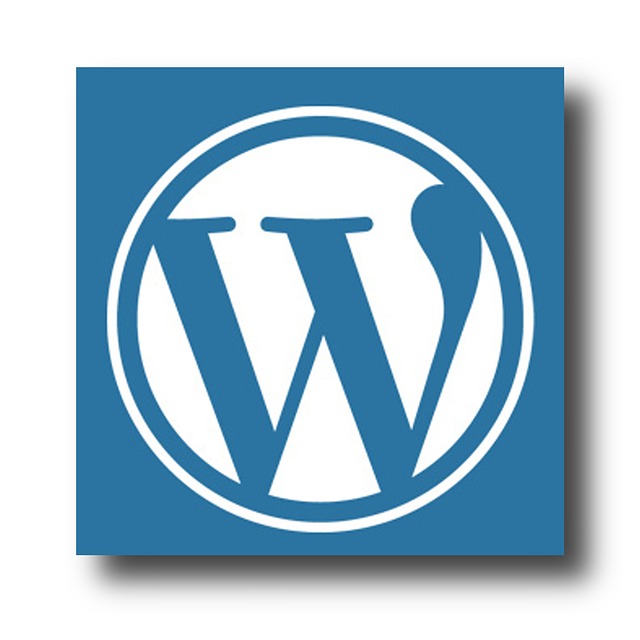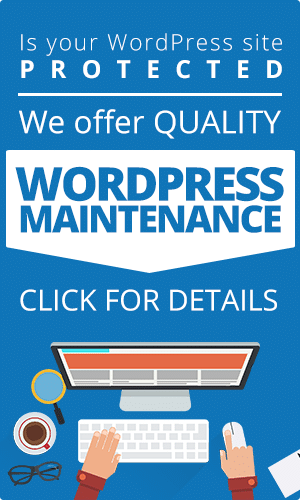
Since its release in 2003, WordPress has dominated the CMS market for a variety of reasons. For starters, WordPress is incredibly user-friendly and provides many tools and extensions that can be used to extend its functionality. But, is WordPress secure? Let’s find out!
Today, WordPress is being used by 455 million websites worldwide, which speaks to its popularity. This accounts for roughly 40% of all websites on the Internet!
Unfortunately, this popularity also makes WordPress sites a tempting target for criminal actors all across the world. At the very least, we hope you’re considering WordPress’ security level in light of recent attacks.
Business Owners Should Prioritize Website Security
As a business owner, however, you likely have numerous things vying for your attention. Website security might not be at the top of your list of priorities. There are simply too many other issues to be concerned about.
However, the truth is that the security of your WordPress website has a significant impact on the health and well-being of your business. Failure to keep software updated and protected can result in costly damage, putting your business in jeopardy.
We’d be lying if we said WordPress websites are unaffected by cyber attacks. According to studies, hundreds of thousands of WordPress sites are hacked each year.
Having said that, hackers are not gaining access because of flaws in the most recent WordPress core software. Rather, most websites are hacked as a result of completely avoidable problems. This includes not keeping things up to date and using unsafe passwords.
We’ll address the query “How safe and secure is it to utilize WordPress for my website?” in this article. As you will see, the answer requires some nuance.
However, we are confident that you will gain peace of mind knowing that WordPress is by far the safest and most secure Content Management System ever developed.
Beware the Google Blacklist
Website security is becoming an increasingly important concern for business owners. Google continuously scans the web’s 60 trillion URLs for malware and phishing scams. Every day, Google is known to quarantine approximately 10,000 questionable websites.
These quarantined websites are on the infamous “Google blacklist.” Having your website included in Google’s blacklist effectively means you’re off the Internet until the website is fixed. Being blacklisted can obviously have a devastating impact on a small company’s sales and reputation.
WordPress is a secure platform for powering your website as long as website owners follow best practices for security. In fact, WordPress core was responsible for only 0.58% of security flaws in 2021.
The core WordPress software is extremely secure, and hundreds of developers routinely audit it. However, there are additional steps that may be taken to secure the website and avoid hackers.
Primary WordPress Security Issues
A secure website is essential for safeguarding your users’ data, preserving your reputation, and avoiding SEO penalties. Not all Content Management Systems (CMS) provide the same level of protection, however.
WordPress core software is extremely secure, and it is frequently audited by hundreds of developers. However, further precautions can be taken to secure the website and keep hackers at bay.
WordPress security dangers come in all kinds and sizes, but they are all manageable. Let’s go over each of the issues you can encounter as a result of this.
Brute-Force Login Attempts and Stolen Credentials
These security issues are being addressed together because they both relate to the WordPress login page. The login page is the obstacle that prevents access to the WordPress dashboard. This then gives you the ability to manage and set up your website.
Someone who obtains privileged credentials will be able to log in and access the dashboard. This gives them easy access to confidential user data, allows them to change or delete existing pages and posts, and prevents other accounts from logging in.
The level of damage that these attackers can cause is determined by their account permissions. If a hacker has access to an administrator account, they are free to do whatever they want.
However, hackers don’t need to steal passwords to bypass the WordPress login with a brute-force attack. They’ll just rapidly attempt various login and password combinations in the hopes of coming up with the right ones. The performance of your website can be affected, depending on how severe the attack was.
Plugins and Themes Security
Every piece of software contains security flaws, and nothing is completely impenetrable. This also applies to themes and plugins. Vulnerabilities within plugins and themes might provide a security risk.
Extensions are a major source of hacks on WordPress websites. Security risks, on the other hand, do not indicate that the dangers outweigh the advantages. WordPress enables you to genuinely customize your website to match your own requirements and execute complicated functions.
However, increased complexities require additional safeguards to keep your website secure. As a result, maintaining plugin and theme security for your website is critical.
User Safety and Security
Website security is the responsibility of both service providers and active users such as web administrators or owners. If you want your website to be secure, you must implement security measures such as two-factor authentication and appropriate user roles.
User security weaknesses can be a key source of attack even on simple websites. To guarantee that your website is secure, keep an eye out for the following mistakes WordPress users can make:
- Using Weak WordPress Login Credentials: Have you ever noticed how most websites encourage you to log in using strong passwords? There is a valid reason for this.Not only do they not want you to remember the password, but tougher passwords are more difficult to crack using a brute force attack. Hackers can simply use dictionary attack bots to obtain access to your account if you use dictionary words.
Therefore, strong login credentials for your website are essential.
- Not Keeping Your WordPress up to Date: WordPress updates might include security fixes that resolve any vulnerabilities or flaws in your website, in addition to new features.However, if you do not regularly update WordPress, these flaws may persist and become a target for attackers.
- Failure to Install SSL: Without an SSL certificate, your WordPress website may be vulnerable to assaults on public networks. Hackers can gain access to your website by intercepting server requests.This can be avoided by using an SSL certificate, which encrypts all communication to and from your website server.
Is WordPress Secure: How WordPress Provides Safety and Security
WordPress’s Core Team
Because WordPress runs more than a quarter of all websites on the internet, millions of eyes are on the lookout for backdoors and vulnerabilities. The WordPress Core team understands this and has put up a highly effective security team.
They work around the clock to keep WordPress secure by installing the most recent security measures. Furthermore, they are constantly neutralizing potential security threats, identifying bugs, and releasing security update patches on a regular basis.
Opt for a Secure Web Host
Some web hosts place a higher priority on security than others. Most of the time managed WordPress hosting offers the most value for your money. This is because managed hosting typically offers options such as:
- Automated backups: If your website is compromised, you should be able to secure it again.
- Services for detecting and removing malware: Managed hosting companies frequently keep an eye out for malware on your website and will assist you in getting rid of it if they do.
- Automatic updates for WordPress: Some web hosting will automatically update WordPress core. As a result, employing a current version of WordPress reduces your risk of security breaches.
Use Security Plugins and Packages for WordPress
There are numerous WordPress security plugins available to protect your website. However, depending on which plugin you choose, the possibilities available to you can differ substantially.
Some of the most frequent functionalities provided by security plugins are:
- allowing entry to security logs.
- blocking known harmful IP addresses.
- checking for changes in files.
- integrating CAPTCHA and two-factor authentication into the WordPress login page.
- restricting how many logins attempts a user can make in a given time frame.
It’s critical to realize that WordPress security plugins aren’t a surefire method of keeping your website safe. You may implement numerous security enhancements using the majority of these tools.
Having said that, it’s crucial to remember that we still advise adhering to other recommended practices for safeguarding your website.
Contact Us for Website Design and Security Services.
WordPress is a secure platform. However, by following security best practices, you may reduce the likelihood of vulnerabilities and attacks even further. As a result, we recommend using a secure web host, instituting strong password policies, safeguarding your login page, and taking other precautions.
At Innovative Solutions Group, we create websites with security in mind, and we offer ongoing maintenance services to existing sites to guarantee that they are secure. If you want to establish a new site or have a reputable company host your website, please contact us or call us at 406-495-9291.





